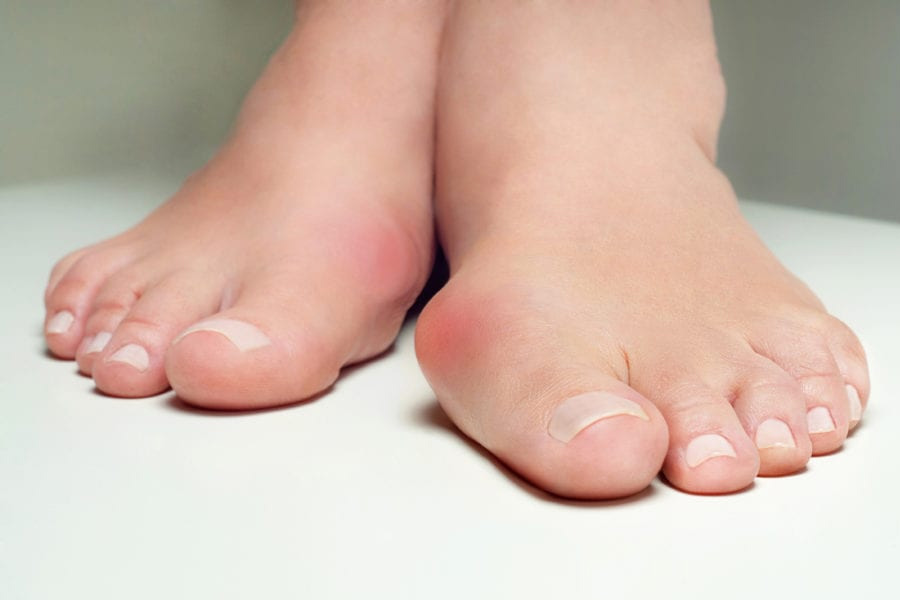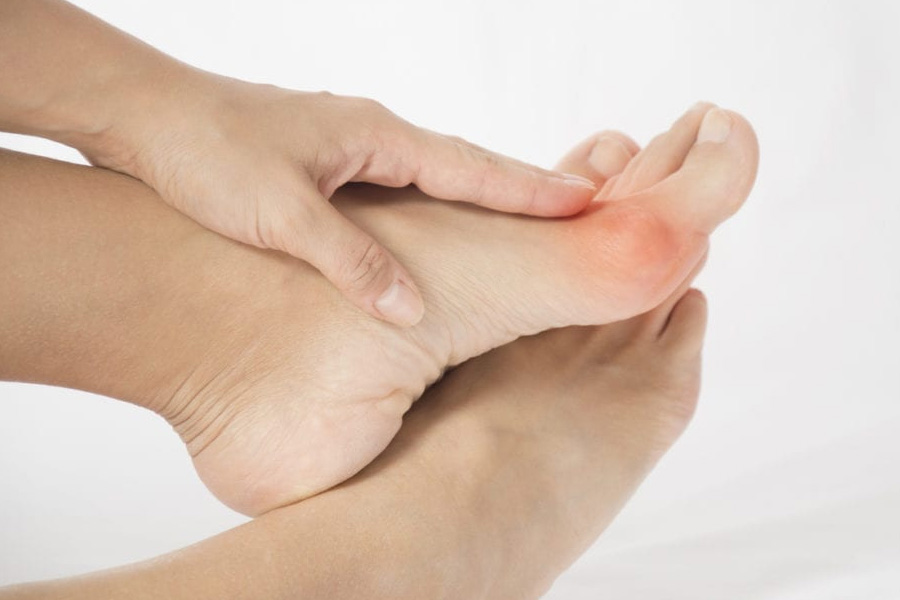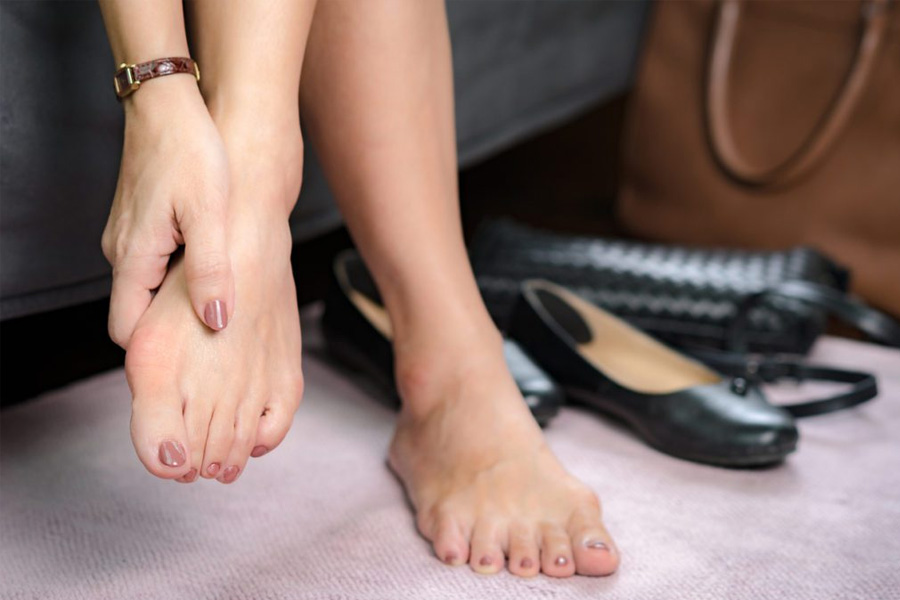Bunions are a foot deformity made up of bone and soft tissue that most frequently form around the joint at the base of the big toe. Bunion surgery is carried out to correct the deformity and to reduce the pain caused by a bunion when other treatments have been unsuccessful.
A bunion is a bony bump that develops at the base of the big toe. It occurs when bones in the front part of the foot move out of place, causing the tip of the big toe to get pulled toward the other toes. This forces the joint at the base of the big toe to stick out. Bunions can also develop in other areas, such as along the side of the little toe, but these are less common. Bunions can be very uncomfortable and become painful if they rub against shoes. The skin over the bunion may become red and sore.
There are a number of different factors that can cause or increase the chances of developing bunions, which include:
- Wearing tight or narrow shoes or high heels (causing bones to become misaligned)
- Hereditary factors
- A foot deformity
- A medical condition such as arthritis or polio
Treatment for Bunions
A bunion can be a painful condition that can impede movement of the big toe and the ability to walk properly. There are a variety of treatment options depending on the severity of the bunion and how much pain it causes. Conservative treatments that can relieve pain and pressure of a bunion include better fitting shoes with space for the toes and a low heel, pain relief and anti-inflammatory medication, good foot care, felt or foam pads worn between the toes or on the foot to protect the area, and custom-made shoe inserts that can help position the toes and relieve pain.
If conservative treatments do not relieve symptoms, many patients opt to have bunions surgically removed in order to restore normal alignment and pain-free movement and function. There are numerous surgical techniques for treating bunions, and the severity of the condition will determine the most appropriate option. The goal of bunion surgery is to realign the bones, joints, tendons, ligaments, and nerves, place the toes in their correct positions, and remove the bony bump.
Bunion surgery is typically an outpatient procedure. It requires an ankle-block anesthesia or general anesthesia, so no pain is felt during the procedure. Bones are held in position with wires, screws, and plates, and a cast or orthopedic shoe will protect the foot while it heals. Crutches, a walker, or cane will be required temporarily.
Am I A Candidate for Surgery?
If a bunion is not painful, surgery is not usually recommended. Bunions often get worse over time, but surgery is not recommended to prevent bunions from worsening, and oftentimes, proper footwear and other preventive care can slow down the progression of a bunion. Good candidates for bunion surgery are usually those that have:
- Significant foot pain that limits everyday activities such as walking and the ability to feel comfortable in shoes
- Pain that does not improve with medication
- Toe deformity, particularly if there is potential for the toes to cross over each other
- Chronic inflammation in the affected toe that does not improve with rest or medications
- Toe stiffness or the inability to bend or straighten the affected toe
- Good overall health
Bunion surgery is highly successful in a majority of cases, but as with any type of surgical procedure, there are risks involved with bunion surgery. Although complications occur infrequently and are often treatable, it is worth considering the risks and discussing them with your surgeon before committing to surgery. Risks can include infection, nerve injury, stiffness in the toe joint, failure to relieve pain, and recurrence of the bunion.
It can take many weeks to recover from bunion surgery and the success of surgery will depend on how well the surgeon’s instructions are followed during the first few weeks of surgery. Physical therapy may be recommended to restore strength and motion.
Bunion Treatment in Cincinnati, Ohio
If you would like to learn more about the different treatments for bunions, or to find out if you are a candidate for surgery, speak to the experienced podiatrists at Cincinnati Foot & Ankle Care. We treat a broad spectrum of injuries and conditions affecting your feet and ankles to give you the relief and healing you need. To find out more, call the location nearest to you, or you can use our convenient appointment request form.





